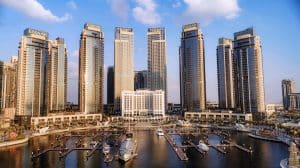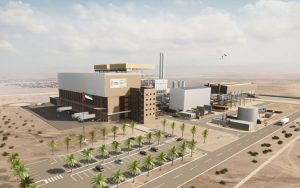
Qatar’s real estate prices continue to reach record highs. According to the Real Estate Price Index (REPI) published by the Qatar Central Bank (QCB), average prices for land, commercial and residential properties in June 2014 stood 20% above their peak in September 2008. This could suggest a potential overheating of the real estate sector. Closer analysis, however, indicates that the increase is still within the fundamentals of Qatar’s fast growing economy and rapid population growth, a QNB press release said.
The QCB publishes the REPI on a monthly basis on its website. The index was developed to measure the average increase in real estate prices in Qatar.
It is based on Ministry of Justice data on land and property transactions published on a weekly basis. According to the latest data, the REPI increased 21.5% in the first six months of 2014, showing a significant acceleration compared with the 6.2% increase in the second half of 2013.
Are these large increases in real estate prices in line with economic fundamentals or a sign of another real estate bubble? To answer this question, we compared the real estate price index to two measures of fundamentals in the economy.
One measure is based on push factors affecting real estate prices. The other measure is based on price movements in the economy. Both measures suggest that real estate prices continue to be in line with economic fundamentals.
First, real estate prices in Qatar have recently been pushed up by both a base effect (population) and an income effect (income per capita). The base effect is the large increase in population experienced since mid-2012.
As population grows, the demand for housing increases, pushing up real estate prices. The income effect arises from the higher GDP per capita as a result of the rapid economic growth over the last few years. As per capita GDP rises, more income will be spent on housing, pushing up the value of real estate properties.
Based on this analysis, Qatar’s real estate prices continue to be in line with fundamentals, albeit close to their limits. While base and income effect combined have increased by 345% since 2006, the QCB REPI has only risen by 326%, suggesting that real estate prices continue to be justified by Qatar’s economic fundamentals.
Real estate prices, however, are reaching what may be an upper limit based on this analysis, suggesting possible overheating.
A second measure of economic fundamentals driving real estate prices is given by relative price movements in the economy. Real estate prices should not normally outpace the nominal expansion of the domestic economy as this would indicate a real estate bubble. In this context, the growth of non-hydrocarbon GDP is a good proxy for the expansion of the domestic economy and represents an upper bound for real estate prices.
At the same time, real estate prices would normally rise faster than the overall Consumer Price Index (CPI) as the supply of real estate is limited to the domestic market (land and houses cannot be imported) and can only increase with a lag, compared with the price of traded goods (e.g. clothing, food, etc.), which is determined by global demand and supply.
The CPI index therefore normally represents a lower bound for real estate prices.
Based on this second measure, Qatar’s real estate prices remain well within fundamentals. Non-hydrocarbon GDP is estimated to have increased by over 500% since 2006, compared with 326% for the QCB REPI and 141% for the CPI. As long as real estate prices do not exceed the nominal expansion of the domestic economy, real estate prices are expected to be sustainable.
Overall, both measures presented above suggest that Qatar’s real estate prices continue to be in line with economic fundamentals.
Qatar’s fast growing economy and rapid population growth seem to justify a rapid increase in real estate prices, which remains in line with other nominal developments in the economy. Further rapid increases in real estate prices could, however, signal overheating and a potential for another real estate bubble.
Source : Qatar News Agency











